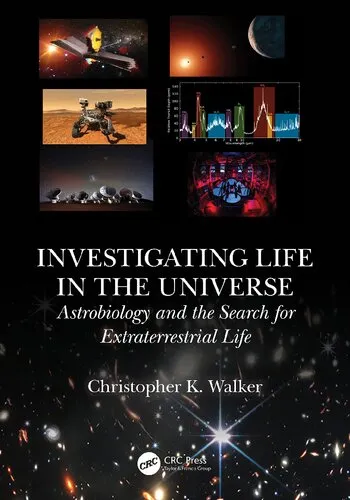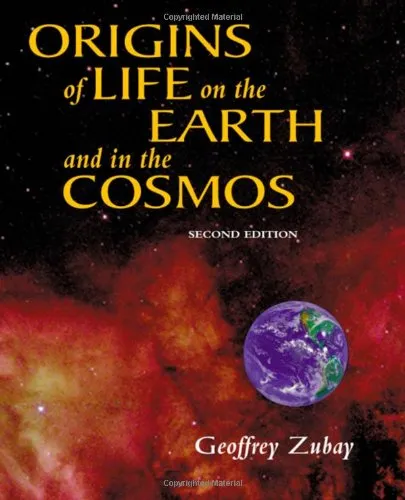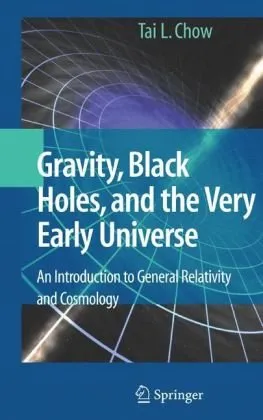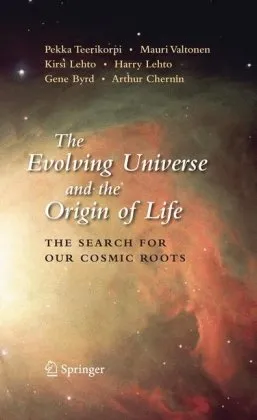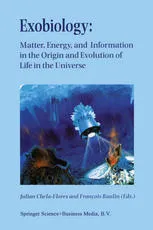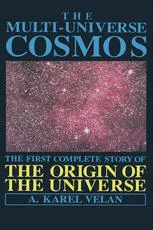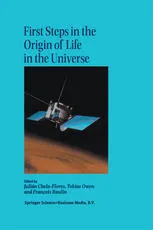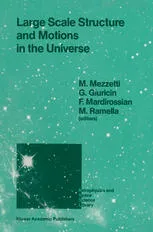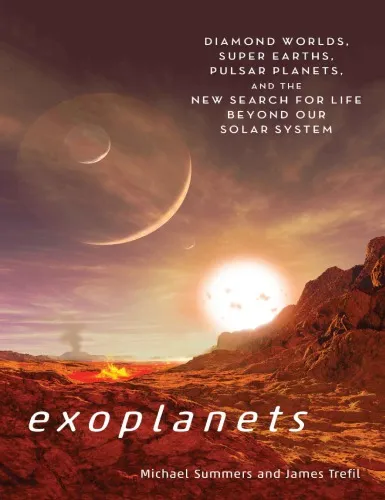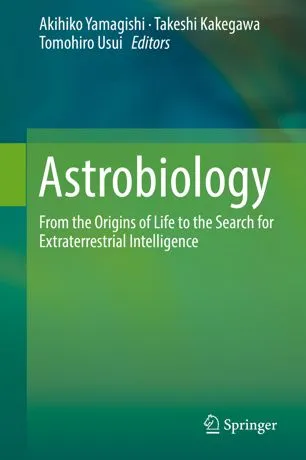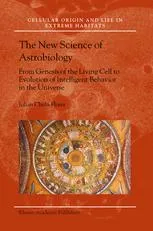Investigating Life in the Universe : Astrobiology and the Search for Extraterrestrial Life
4.5
Reviews from our users

You Can Ask your questions from this book's AI after Login
Each download or ask from book AI costs 2 points. To earn more free points, please visit the Points Guide Page and complete some valuable actions.Related Refrences:
Introduction to "Investigating Life in the Universe: Astrobiology and the Search for Extraterrestrial Life"
The question of whether we are alone in the universe has intrigued scientists, philosophers, and curious minds for centuries. "Investigating Life in the Universe: Astrobiology and the Search for Extraterrestrial Life" delves into the cutting-edge science of astrobiology, a field dedicated to exploring the origins, presence, and potential for life beyond Earth. This book offers readers a comprehensive and accessible guide to the scientific principles, fascinating discoveries, and philosophical implications surrounding humanity’s search for extraterrestrial life.
Combining rigorous scientific knowledge with thought-provoking questions, this book bridges the gap between complex research and the human curiosity that drives it. From the chemical ingredients essential to life, the mysteries of habitable zones, to the technological tools behind space exploration, "Investigating Life in the Universe" opens up a universe of possibilities, guiding readers on a journey to understand life as we know it—and life as we’ve yet to discover.
This introduction provides a detailed look into the contents of the book, including a thorough summary of what to expect, key insights, memorable excerpts, and an exploration of why studying astrobiology matters not just for science but for humanity’s future.
Summary of the Book
"Investigating Life in the Universe" is a deep dive into the interdisciplinary field of astrobiology, starting with the basic tenets of life science and expanding to cosmic frontiers. The book is structured to guide readers through essential topics such as the biochemical foundations of life, Earth’s history as a blueprint for recognizing life elsewhere, and the tools used to study distant planets.
The early chapters explore life’s origins on Earth, the chemical environments that support its formation, and how these conditions might be replicated elsewhere in the cosmos. Later sections focus on exoplanets and their potential habitability, with emphasis on the role of liquid water, atmospheric composition, and energy sources. The final chapters tackle the potential cultural and societal impacts of discovering extraterrestrial life, ethical questions surrounding planetary protection, and the future of human exploration beyond Earth.
Written in an engaging style, the book targets a broad audience, including students, educators, and general enthusiasts of science and space. It blends empirical findings with speculative thinking to encourage readers to dream big and think critically about the universe and our place within it.
Key Takeaways
- Understanding the biochemical prerequisites for life and their universality.
- Exploring the various methods astronomers and scientists employ to detect habitable planets and extraterrestrial biosignatures.
- Examining the diverse planetary environments that could host life, from Earth-like worlds to icy moons and beyond.
- Analyzing the ethical implications of interacting with extraterrestrial ecosystems and the necessity of planetary protection laws.
- Contemplating the philosophical and societal consequences of discovering life elsewhere in the cosmos.
Famous Quotes from the Book
"The search for extraterrestrial life is not just a search for others; it is, at its core, a search for understanding ourselves and our place in the cosmos."
"Every new planet discovered reminds us that we are part of something far greater, a universe teeming with potential."
"Astrobiology is the science of the future—a discipline that blends what we know with what we dare to imagine."
Why This Book Matters
The importance of "Investigating Life in the Universe" lies in its relevance to not only science but also the human condition. This book highlights humanity’s innate curiosity and its insatiable desire to push boundaries and discover the unknown.
At a time when advancements in astronomy, space exploration, and biology are accelerating, this book offers a timely perspective on how science is positioning humanity to tackle one of the most profound questions ever posed: are we alone? It underscores that understanding alien life—whether or not we find it—has the potential to reshape our worldview, redefine our sense of identity, and remind us of the interconnectedness of all life forms.
With its emphasis on cutting-edge research and its ability to inspire readers toward a deeper appreciation of science, "Investigating Life in the Universe" serves as a cornerstone for anyone passionate about exploring life’s great mysteries.
Free Direct Download
You Can Download this book after Login
Accessing books through legal platforms and public libraries not only supports the rights of authors and publishers but also contributes to the sustainability of reading culture. Before downloading, please take a moment to consider these options.
Find this book on other platforms:
WorldCat helps you find books in libraries worldwide.
See ratings, reviews, and discussions on Goodreads.
Find and buy rare or used books on AbeBooks.
1250
بازدید4.5
امتیاز0
نظر98%
رضایتReviews:
4.5
Based on 0 users review
Questions & Answers
Ask questions about this book or help others by answering
No questions yet. Be the first to ask!
